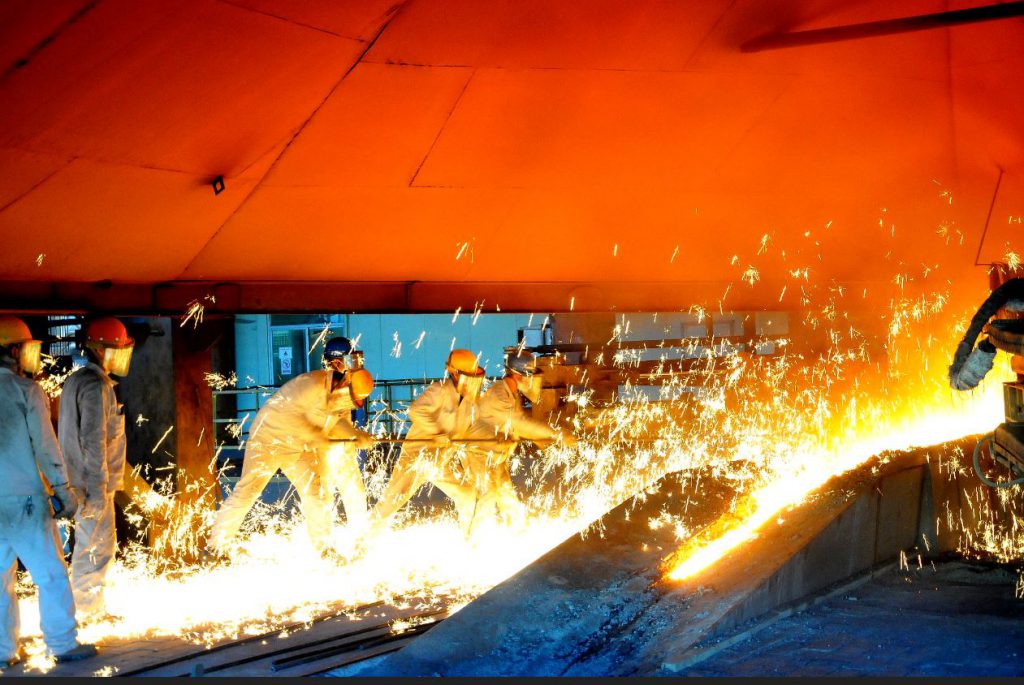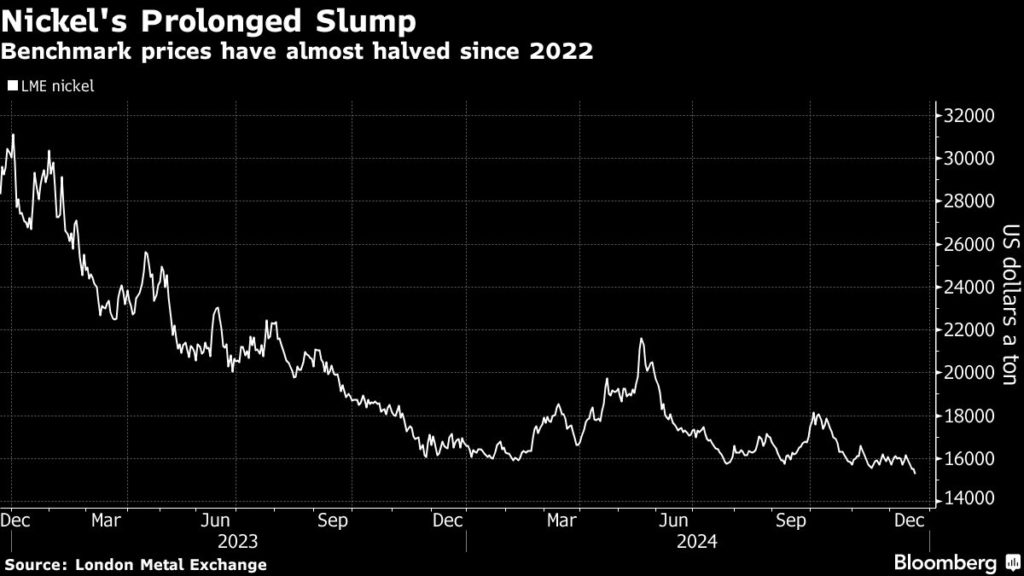Indonesia weighs deep cuts to nickel mining to boost prices

Indonesia is considering deep cuts to nickel mining quotas as it seeks to boost slumping prices of the battery metal, according to people familiar with the matter.
The Energy and Mineral Resources Ministry is looking at lowering the amount of nickel ore allowed to be mined next year to 150 million tons, said the people, who asked not to be named as the deliberations are private. That would be a sharp drop from 272 million tons this year.
Discussions about the size of the potential cut are ongoing within the government, the people said. Any move to significantly constrain output would likely be opposed by the finance and investment ministries due to the hit to tax revenue, and would also risk having a chilling impact on investment in the country’s nickel sector.
A spokesperson from the energy ministry didn’t respond to messages seeking comment. The ministry’s director-general of coal and mineral mining said it was planning to curb nickel production to boost prices, according to a report in the Jakarta Post last week.

Any move to restrict nickel mining by President Prabowo Subianto, who took office in October, would mark a departure from the previous administration, which encouraged a rapid build-out of local smelting capacity. However, the government has been managing the amount of ore its miners produce this year to try and balance the market.
Global prices of the metal, used for electric vehicle batteries and to make stainless steel, crashed by 45% in 2023 and have failed to recover this year. Booming supply from Indonesia, which now accounts for more than half the world’s nickel output, and slower-than-expected demand growth have weighed on the market and forced some producers in other countries to shutter operations.
There’s been no sign of a recovery this year as China’s economy, the world’s top metals consumer, endures a prolonged slump. Even smelters in Indonesia — which are largely Chinese-owned — have been feeling the pinch, particularly as high prices for ore due to tight local supply cut into their margins.
A reduction in mining quotas would only make that worse, forcing them to boost imports from other countries such as the Philippines. Indonesian ore imports from its Southeast Asian neighbor hit record levels this year as smelters struggled to procure the raw material locally.
The move may also be part of government efforts to preserve its rapidly depleting nickel reserves. The average grade of ore mined in the country has dropped sharply in recent years, reflecting the unconstrained boom in supply.
(By Eddie Spence and Faris Mokhtar)
Read More: Indonesia curbing nickel supply to support locals, Eramet says
{{ commodity.name }}
{{ post.title }}
{{ post.date }}




Comments